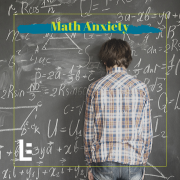Teacher’s Learning Secrets to Use at Home
 Getting 30+ children in a room, and keeping them quiet, engaged, and focused for any length of time is no easy task. As educators, we must show prowess in pedagogy and behavior management at any given moment. We know what it takes to manage, encourage, educate, and inspire children—after all, it is our job. However, it is not our job, alone. As parents, you help to shape your child’s educational experience and expectations. It’s a team effort, which is why I want to share some tried and true learning and behavior management strategies that can boost comprehension and cooperation at home.
Getting 30+ children in a room, and keeping them quiet, engaged, and focused for any length of time is no easy task. As educators, we must show prowess in pedagogy and behavior management at any given moment. We know what it takes to manage, encourage, educate, and inspire children—after all, it is our job. However, it is not our job, alone. As parents, you help to shape your child’s educational experience and expectations. It’s a team effort, which is why I want to share some tried and true learning and behavior management strategies that can boost comprehension and cooperation at home.
“You don’t have to do anything that you don’t want to do.”
This statement will literally stun your child at first—as it should. Children are used to following rules and listening to directions. So, if you’re ever in the “But I don’t want to” battle over homework or studying, start with this statement: You do not have to do anything, but you must be ready to accept the consequences. When you explain to children that they have some autonomy in their own decision-making, they begin to comprehend independence and consequences more clearly.
When students ask me if they have to do something, I always respond like this: There is nothing in life that we have to do, necessarily. We do not have to show up to work every day. We do not have to brush our teeth. We do not have to tell the truth. But in every decision that we make, we must be prepared to face the consequences. So, the next time your child asks if she has to read for her book report, give her the honest truth—she does not have to read the book, but she will have to accept the consequences of neglecting the reading, i.e., failure, stress, lower GPA, etc. Your child will make the right decision when faced with the options and consequences.
Push reading of any sort or genre
I often get questions like, “What should my child be reading in her spare time?” or “How can I get him interested in a different genre?” Too often, parents want to steer a child’s reading interests, or discourage certain juvenile or fictional selections. The key to reading for pleasure is that it is pleasurable. Encourage more reading at home by allowing your child to select from any genre. When children have a genuine interest in a book, they’re more likely to retain the information. The same thing is true with engagement in the classroom. This is why teachers are constantly tasked with making lessons relevant to our students’ real lives. That said, encourage reading for pleasure by leaving the selection up to your child. After all, when kids are picking up a book instead of a remote control or smartphone, I consider that a win.
Master the follow-up question
The follow-up question is a great technique to prompt your child to expound upon a statement or idea. You can use a follow-up question for conversations beyond homework, as well. For instance, the ever-so-popular “How was your day?” question often elicits an unenthused response. Instead of settling with a blasé reply, follow-up with another question. Ask your child what exactly was “fine” about today? Prompt him to define the word “fine.” Ask how the day could have gone differently or inquire about what your child hoped would have happened today.
Of course, the follow-up question applies to academics, as well. Ask your child how he or she would describe the main character of an assigned novel. Then, follow-up with the “why” question. What happened in the story to bring him to this conclusion? Does he think that his opinion of this character will change as the story continues? These questions urge your child to elaborate and explain in detail. This practice, which teachers use frequently, demonstrates the importance of being able to not only answer appropriately, but to explain how one came to that conclusion.
These teacher’s “secrets” can be just as effective at home as at school. And when employed by both parents and teachers, these learning strategies encourage and enhance student autonomy and achievement.






